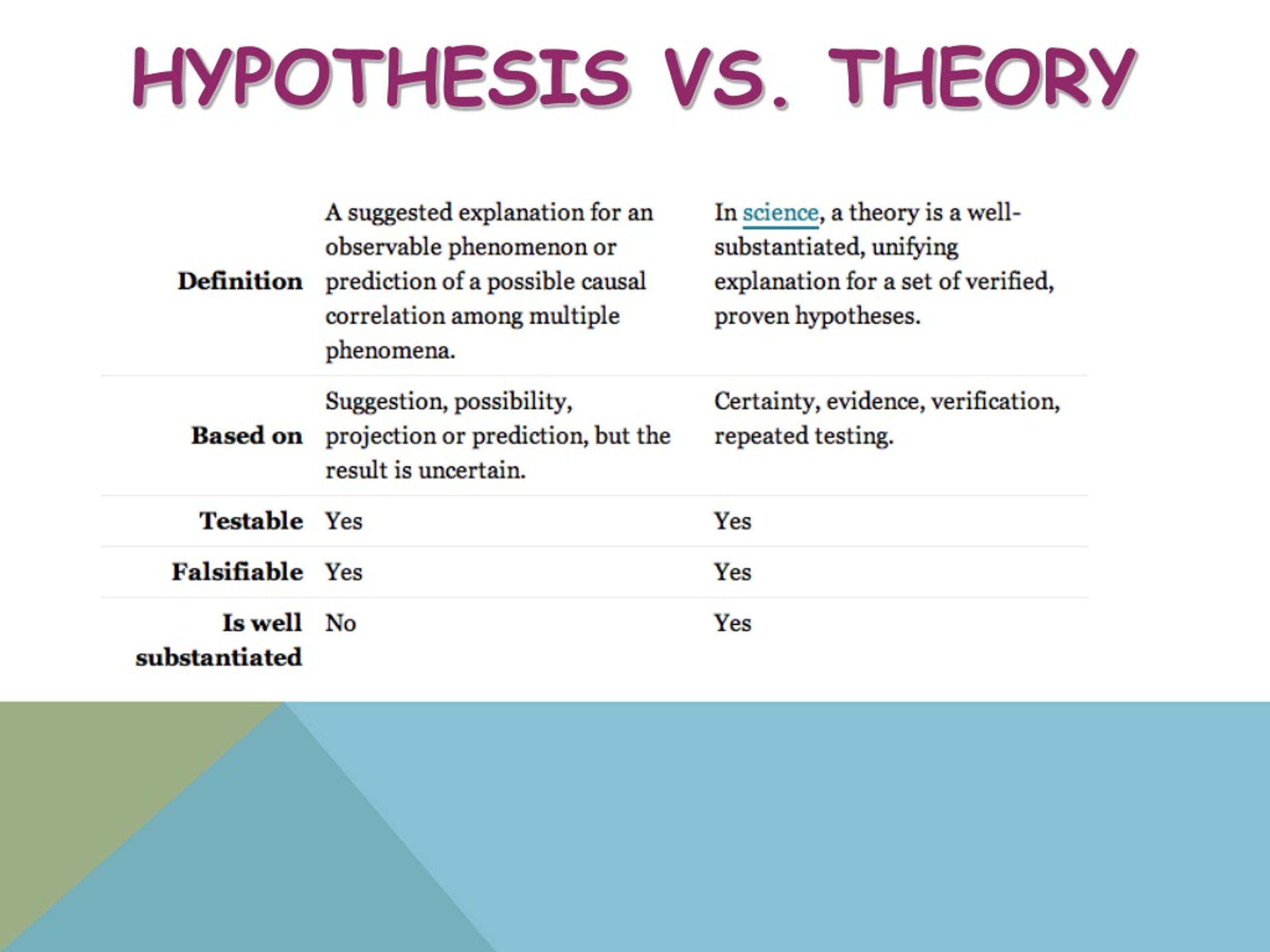Theory vs. Hypothesis: A Critical Distinction Science Can't Afford to Lose

Stop saying "it's just a theory." Discover the critical difference between a hypothesis and a scientific theory, and why confusing these terms undermines public understanding of everything from evolution to climate change.
How many times have you heard someone say, "I have a theory about that"? If you're a scientist, or anyone who values precision in language, this phrase is like nails on a chalkboard. Why? Because the speaker almost certainly does not have a theory. What they have is a guess, a hunch, or at best, a hypothesis.
This isn't just academic nitpicking. Confusing the word "theory" with "hypothesis" is a critical error that fuels public misunderstanding of some of the most important concepts of our time. As the lecture on "Decoding Systems" pointed out, when we conflate distinct words, we destroy the concepts behind them. And in this case, we're dismantling the very foundation of scientific literacy.
The Common Misconception: "It's Just a Theory"The most damaging fallout from this confusion is the phrase, "It's just a theory." This is routinely used to dismiss well-established scientific pillars like the theory of evolution or the theory of human-caused climate change.
The argument goes: "Evolution is just a theory, it's not a fact," implying that scientists are just guessing and that other guesses are equally valid. This line of thinking is a direct result of using the colloquial meaning of "theory" (a guess or speculation) instead of its scientific meaning.
So, let's decode these terms and restore their true power.
What is a Hypothesis? Your Educated GuessA hypothesis is the starting point of the scientific journey. It is a proposed explanation for a single, observable phenomenon. Think of it as an educated guess that must be testable and falsifiable.
- Educated: It's not a random thought. It's based on existing knowledge, observations, and logic.
- Testable: You must be able to design experiments or make further observations that could potentially prove it wrong.
- Provisional: A hypothesis is a starting point, not a conclusion.
Example: You notice that the grass is brown. You might hypothesize, "The grass is brown because it hasn't rained in two weeks." This is a specific, testable statement. You can check weather records and compare the brown grass to green grass in watered areas to test your idea.
In the scientific process, a hypothesis is a single suspect in an investigation. The goal of science is not to prove the hypothesis right, but to do everything possible to prove it wrong. A hypothesis that survives this rigorous testing may become stronger, but it is still a long way from being a theory.
What is a Scientific Theory? The Grand ExplanationA scientific theory is the pinnacle of scientific understanding. It is a well-substantiated explanation of some aspect of the natural world that is acquired through the scientific method and repeatedly tested and confirmed through observation and experimentation.
A theory is not a "guess" that graduates; it is a comprehensive framework that ties together a vast body of facts, laws, tested hypotheses, and logical inferences. Key characteristics of a theory include:
- Well-Substantiated: It is supported by a massive amount of independent evidence.
- Explanatory Power: It explains why things happen, not just that they happen.
- Predictive Power: It can make accurate predictions about future observations or experiments.
- Robustness: It has survived numerous attempts to disprove it and has been verified by multiple lines of evidence.
Examples of Scientific Theories:
- The Theory of Evolution by Natural Selection: This explains the breathtaking diversity of life on Earth. It ties together evidence from genetics, paleontology, geology, and ecology. It's not "just" the fact that evolution occurs (that's the observable part), but the explanatory framework for how and why it happens.
- The Germ Theory of Disease: This theory states that certain diseases are caused by microorganisms invading the body. It's not a guess; it's the foundational principle that underpins modern medicine, sanitation, and public health.
- The Theory of General Relativity: This isn't Einstein's "hunch." It's a complex framework that explains gravity, and its predictions about gravitational lensing and black holes have been confirmed repeatedly.
A scientific theory is the case closed, the solved mystery that explains thousands of smaller clues. It is as close to "fact" as science can get.
The Danger of Conflation: Why This Distinction MattersWhen we use "theory" and "hypothesis" interchangeably, we commit a linguistic error with real-world consequences. We drag the robust, evidence-backed power of a "scientific theory" down to the level of a mere "guess."
This creates a false equivalence. It allows someone to say, "My hypothesis that intelligent design created life is just as valid as your theory of evolution," when, in reality, one is an untested (and largely untestable) proposal, and the other is a cornerstone of modern biology supported by over a century of evidence.
This is exactly the kind of language control that thinkers like George Orwell warned us about. By blurring the lines between a tested explanation and an untested guess, we make it impossible to have a meaningful conversation about evidence, truth, and reality.
Conclusion: A Call for PrecisionThe next time you hear someone say, "I have a theory," consider gently reframing it. "Oh, you have a hypothesis? How would you test that?" This simple act reinforces the crucial distinction.
Understanding the difference between a hypothesis and a theory is not about being pedantic. It's about respecting the rigorous, self-correcting process of science. It's about arming ourselves with the linguistic tools to separate evidence-based knowledge from mere speculation. In an era flooded with misinformation, this distinction isn't just academic—it's essential for navigating the world and making informed decisions about our future.
Comments (Add)
Showing comments related to this blog.